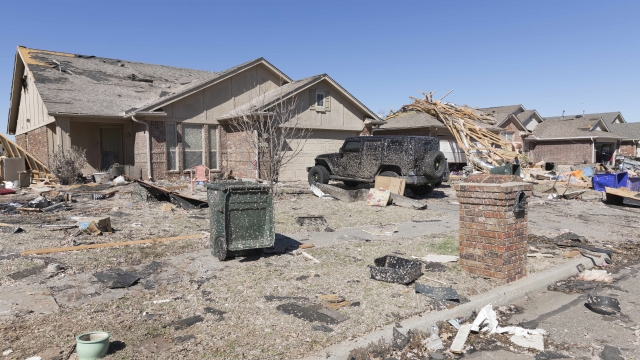Today, severe natural disasters can seem like a common occurrence in our world. In 2022, there were 18 U.S. natural disasters that cost at least one billion dollars in damages and repairs, according to the National Oceanic and Atmospheric Administration.
"And I heard a loud bang and crash and I came out and opened the front door and it was a total disaster everywhere," said Shawn O'Leary, the director of Public Works for the city of Norman, Oklahoma. "It covered about 12 and half miles of Norman and it did a lot of damage. We are currently in the debris management collection stage of that."
It was the third-most expensive year for disasters in American history.
"What's unique about this tornado is that it'll be our fifth one in 15 years," O'Leary said.
The February 2023 tornado in Norman did not cross the billion-dollar mark.
"I think Norman will have about probably 1.6 million and 1.7 million of just city of Norman impacts of dollars," O'Leary said.
But its impact is still being felt weeks later. The Federal Emergency Management Association has funds to help out these communities when a natural disaster occurs, but there is a process. FEMA states any requests must be beyond the capability of the state.
"There is a threshold of damage the city and the state and then the presidential happens before you are eligible. Of those 19 events maybe eight of them have qualified for federal funding — the rest has been on our own," O'Leary said. "The governor has still not declared a disaster, so I have doubts that's going to happen."
In a place like Norman, Oklahoma, where FEMA funding is unlikely, the clean-up costs fall on the local community, which is why it's important that these communities have money stored away and a plan for when disaster hits.
"In Norman we do have a rainy day fund for whatever might happen, whether it's a storm or an IT breakdown, we do have a rainy day fund that is there for this purpose," O'Leary said. "Our citizens need help right now we cant wait for the federal dollars or grant funds. There's really no hesitation for us we jump right in and get the work done."
SEE MORE: How museums are preparing for climate-related natural disasters
Trending stories at Scrippsnews.com




